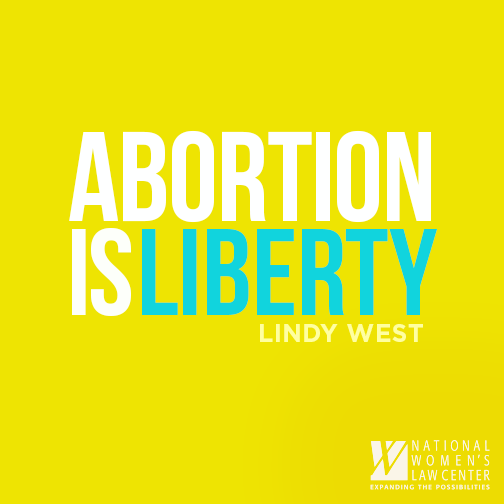The Real Harm of False Medicaid Stereotypes

Next week, the Senate is planning to consider a “revamped” bill to repeal the Affordable Care Act (ACA) that would end Medicaid as we know it. The bill’s changes to Medicaid would have a devastating impact on women who comprise the majority of adult Medicaid enrollees, and women of color in particular. Women of color comprise a large number of women covered by Medicaid, including: nearly one-third of black women, one-quarter of Latinas, and nearly one-fifth of Asian-American Pacific Islander women of reproductive age.
Many of the bill’s provisions that would fundamentally alter the Medicaid program are predicated on frequently-invoked racial stereotypes. For example, the caricature of an “able-bodied” single mother of color “collecting” public benefits and willfully refusing to work while living a lavish lifestyle—has long been resurrected in false narratives to support “reforms” that would slash federal contributions to many benefit programs like Medicaid. Well, it’s time to expose these harmful racial stereotypes surrounding women of color that are fueling the recent proposed changes to Medicaid.
This is why NWLC joined with In Our Own Voice, the Black Women’s Health Imperative, and over one hundred other organizations, including the NAACP, the National Urban League, the Leadership Conference on Civil and Human Rights, AFL-CIO, Sistersong, Planned Parenthood Federation of America, AFSCME, and others to urge senators to oppose proposals to fundamentally alter Medicaid that are predicated on harmful stereotypes and false narratives.
This includes the use of “coded” language designed to stoke resentment of public benefit recipients and to justify cuts to federal contributions to these vital programs. Recent examples of such, not-very-thinly “coded,” language from high-level Administration officials and members of Congress about health coverage include:
- Kellyanne Conway, in an interview with ABC News: Noted that “Obamacare” opened up Medicaid to “many able-bodied Americans who should at least see if there are other options for them.” She continued: “If they are able-bodied and they want to work, then they’ll have employer-sponsored benefits like you and I do.”
- Jason Chaffetz, a Republican congressman from Utah commented during a CNN appearance: “You know what, Americans have choices. And they’ve got to make a choice . . . So maybe, rather than getting that new iPhone that they just love and they want to go spend hundreds of dollars on that, maybe they should invest in their own health care.” [emphasis mine]
- And Vice President Mike Pence and Seema Verma, Administrator for the Centers for Medicare and Medicaid Services (CMS), have invoked the false narrative of irresponsibility by urging that individuals who receive benefits have “skin in the game” and be “incentivized” and “empowered.”
Harmful racial stereotypes also create a narrative that invalidates the lived experiences of recipients of public benefit programs. For example, most Medicaid recipients who can work do work—including a large number of women who work in the health sector in jobs supported by the Medicaid program. The National Women’s Law Center estimates that Medicaid spending supports nearly 4.4 million health sector jobs held by women. However, many women, particularly women of color, are employed in lower-paying jobs that do not offer health insurance coverage or are impacted by pay disparities that leave them unable to afford more costly health insurance on the individual market. By giving states the opportunity to expand Medicaid coverage to more individuals, the Affordable Care Act (ACA) helped to fill this significant gap in coverage, improving the economic security and health of many women struggling to make ends meet. Between 2013 and 2015, about 3.9 million women ages 18 to 64 gained Medicaid coverage, a growth of 29 percent nationally.
The harm of stereotypes about women enrolled in Medicaid is not just theoretical. Just three years after the U.S. Supreme Court ruled that abortion was legal in Roe v. Wade, Congress passed a prohibition on covering abortion in Medicaid, except for very limited circumstances. The prohibition – known as the Hyde Amendment – became effective in 1977 and has been reauthorized every year by Congress as part of a “must-pass” annual spending bill. Many policymakers have justified denying women covered by Medicaid their legal right to abortion by invoking stereotypical narratives about women of color and their legitimacy to mother. Just as some have argued that Medicaid enrollees can simply find a job and pay for health care, many have argued that women enrolled in Medicaid can simply find the money to pay for abortion. But the reality is that this could mean foregoing necessities like paying for rent, food, or transportation to cover the cost of an abortion.
The Senate ACA repeal bill that is up for consideration next week would slash federal funding for Medicaid and allow states to convert the program to a per capita cap or block grant system—which would result in cuts to benefits, enrollment, and provider payments. It would also allow states to impose work requirements as a condition for receipt of Medicaid, supporting the false narrative of Medicaid enrollees not working or putting enough “skin in the game” for coverage.
The bill also compounds the cuts to Medicaid funds by including a provision that would bar Medicaid enrollees from seeking care at Planned Parenthood clinics. Planned Parenthood clinics offer a range of health services, including preventing care, contraceptive care and counseling, and HIV/AIDS testing and treatment, which are vital services for many women of color enrolled in Medicaid. This prohibition would be devastating for many women of color enrolled in Medicaid, including many for whom Planned Parenthood clinics are their only source of care.
While the stereotypes and public narratives about women of color enrolled in Medicaid may be false, the harm of these proposed changes is real and can literally mean the difference between life and death.




